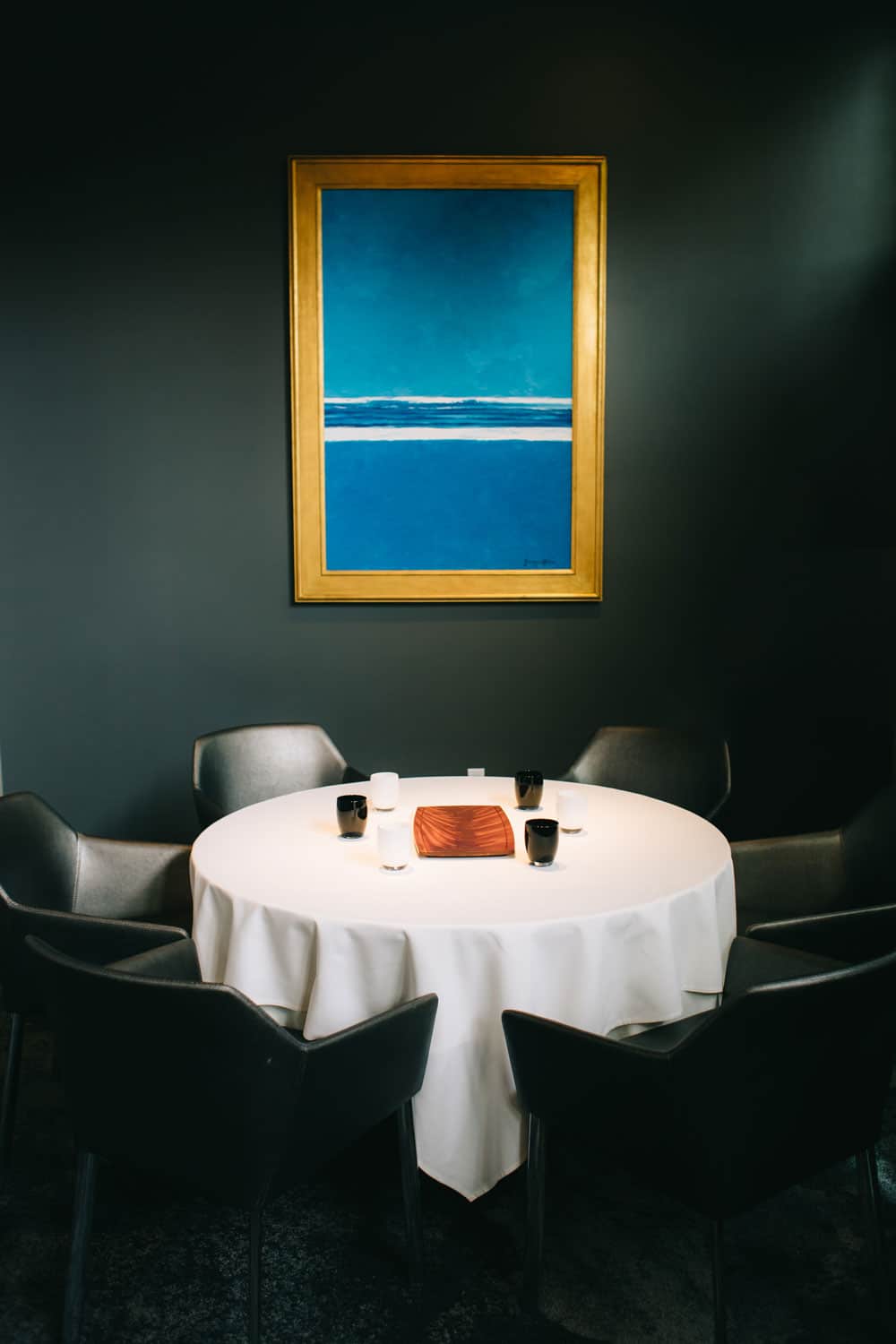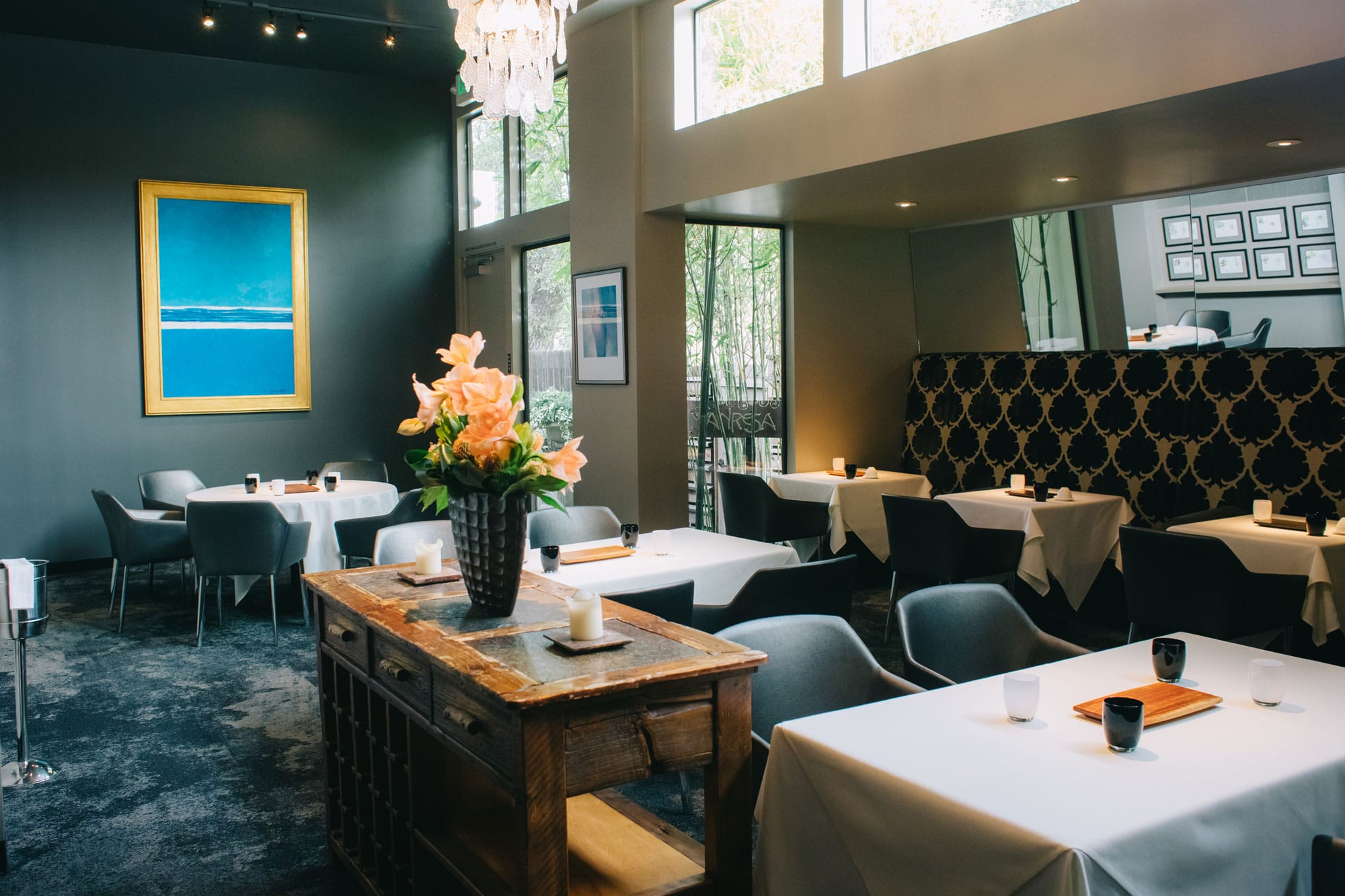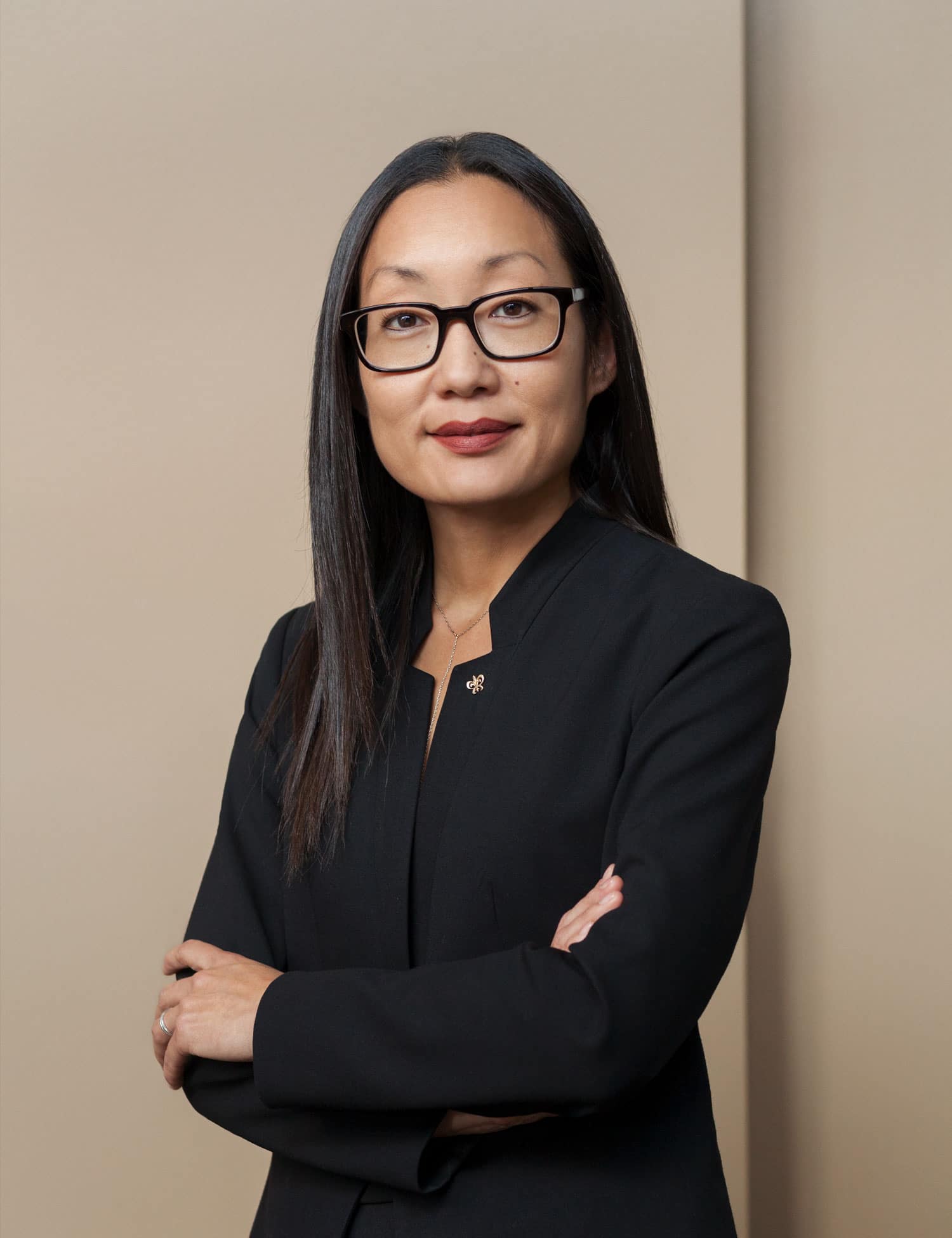Jenny Yun
« Each member of my team has their own personality, and I don’t want them to hide it by playing a role. Guests really connect with those who are genuine and remain true to themselves. »
She thought she wanted to work in fashion. So she left her native California and moved to New York. For two years she worked very hard. As a stylist trainee in a fashion magazine. It’s a bit like being in The Devil Wears Prada but struggling to make ends meet… So you have to make a deal with him!
She worked in a coffee shop at the same time. One day, reality dawned on her: Hospitality was her thing!
And so, from coffee shops to restaurants, she returned years later to her home region to achieve a certain idea of perfection : Managing Manresa, one of the most beautiful establishments on the West Coast.
What did you like about the restaurant business?
I am an only child and I have always envied families with a house full of people. When I came into the restaurant business, I was finally able to have those relationships I missed so much as a child. The team, the regulars, it all reminded me of the home I never had. Doing what I loved, being happy every day to see the people I worked with and getting paid for it… It blew me away.
Did you have any idea of what fine dining was then?
After the coffee shop, I worked in a “real” restaurant, the River Café. I thought I knew everything. It was only when I started working at Per Se that I realised how much my understanding of fine dining was inaccurate. By observing the attention to every detail, to every gesture, to every word chosen to address the guests, I understood the required level of excellence.
For me, growing up in a very strict environment, Per Se was the first place where I learned that a regimented structure can lead to positive and beautiful things. I loved it and truly felt that I belonged there.
That’s when I decided to pursue a career in fine dining.
Jenny Yun’s career path :
-
2000 : Moved from the San Francisco Bay Area to New York
-
2005 : Manager, The River Café, Brooklyn
-
2008 : Concierge (VIP relations), Per Se, New York
-
2012 : Assistant Restaurant Director, Restaurant at Meadowood, St Helena, Napa Valley
-
2013 : General Manager, Enotria Restaurant & Wine Bar, Sacramento
-
2014 : General Manager, Bourbon Steak & Clock Bar, San Francisco
-
2015 : General Manager, Manresa, Los Gatos

« By observing the attention to every detail, to every gesture, to every word chosen to address the guests, I understood the required level of excellence. »
Do you think the fine dining experience is different in New York and California?
Yes, I think so. New York is a unique and exciting city. You never know what’s going to happen next, and dining there can be an eccentric experience in and of itself. In California, however, fine dining is more deeply anchored in its surrounding environment and culture. For instance Chef Thomas Keller’s Per Se in New York is nothing like his other restaurant, the French Laundry in Yountville. Guest expectations are very different in every city or country. And I think that in France, where I had the chance to dine several times, it is completely different as well. It’s the country of gastronomy, you walk into a restaurant and the walls around you ooze history. You can’t get that same feeling here. Fine dining in France is an art of living that we can only try to emulate here, by injecting our personality into it, with more or less success.
In 2012, Jenny Yun decided to return to California and set out to find the establishment that would allow her to fully express her management talents.
How did you meet Chef David Kinch?
I was looking for a place where I could settle and grow, where I would have faith in the cuisine and culture. I was moved by the chef’s philosophy and the resulting restaurant. I had requested meetings with all the three Michelin starred restaurants in the Bay Area, and Manresa was the last of all the interviews. My interview with chef was very natural and honest. He was looking for someone who could take care of what he had built. Manresa is his baby, and I liked the idea of being part of a restaurant’s quest for its third Michelin star. During the interview, I even promised to achieve that, which was a bit cheeky. I was hired and the restaurant ended up getting it before my first day… So I had nothing to do with it!
What makes the Manresa experience so unique?
We focus on local resources, which is apparent mostly in the food but also in the wine, and perhaps less tangible in the dining room itself. We use unique tableware. Some plates were hand carried back by chef from Japan. And we tell the guests about it: we share our state of mind, explain how we created a dish based on a childhood memory or as a result of a discussion with the chef… It is our responsibility to tell these stories, so that guests can establish a personal relationship with their dishes. These stories say something about the chef, about his singular personality, both whimsical and serious. A three-star restaurant doesn’t have to be a rigid place. At the end of the day, we are a restaurant that serves food to people who come to visit us. Some of our guests have been to many three-star restaurants, while others have saved up for years to come to Manresa and discover the haute gastronomy world. We want all of our guests to feel at home whenever they dine with us.
Each member of my team has their own personality, and I don’t want them to hide it by playing a role. Guests – people – really connect with those who are genuine and remain true to themselves. So that’s what I ask of them. But they also know that there are strict boundaries, prohibited words, because after all, they are not having a chat with their friends. I have to help newcomers, especially those who don’t have experience of starred establishments, understand they are talking to people who are about to spend a copious amount of money. So no “yeah” or “cool”. They have to use the right words while still being themselves. One of my predecessors asked them to walk with their hands behind their backs… I didn’t want that because it did not seem natural, so I changed some things. I want my team members to be able to share a laugh with guests, I want guests to talk about their families, their grandchildren. I want my team to engage with guests, but not to linger, because the timing in the kitchen has to be respected too!
What is the greatest satisfaction in your work?
Witnessing that magical moment when a team member who came here not knowing about Michelin star restaurants, not knowing who David Kinch is, and having only glanced a minute at the website before interviewing, realises after several months that they are part of something extraordinary. I see in them that moment of recognition, that “Ah Ha!” moment when they understand why we do things the way we do. I would add that I don’t think there ever was a day when I didn’t want to come to work. Every service is different, maybe the things you do are the same but it’s always a unique moment. I don’t really know what’s going to happen when I start my day, I may have a game plan, a strategy, scenarios in my head, but it never happens the way I imagined. And that is the beauty of service.

« I want my team members to be able to share a laugh with guests, I want guests to talk about their families, their grandchildren. I want my team to engage with guests, but not to linger, because the timing in the kitchen has to be respected too! »
Jenny Yun doesn’t know what the future holds for her at Manresa, which she hopes keeps growing. She is fully aware that her assistant deserves to progress in his own career, and she wants to give him that opportunity. So it’s up to her to find a new role and reinvent herself by discussing new projects with the chef. In the meantime, she gives her best for each service, as she has done since the day she joined.


